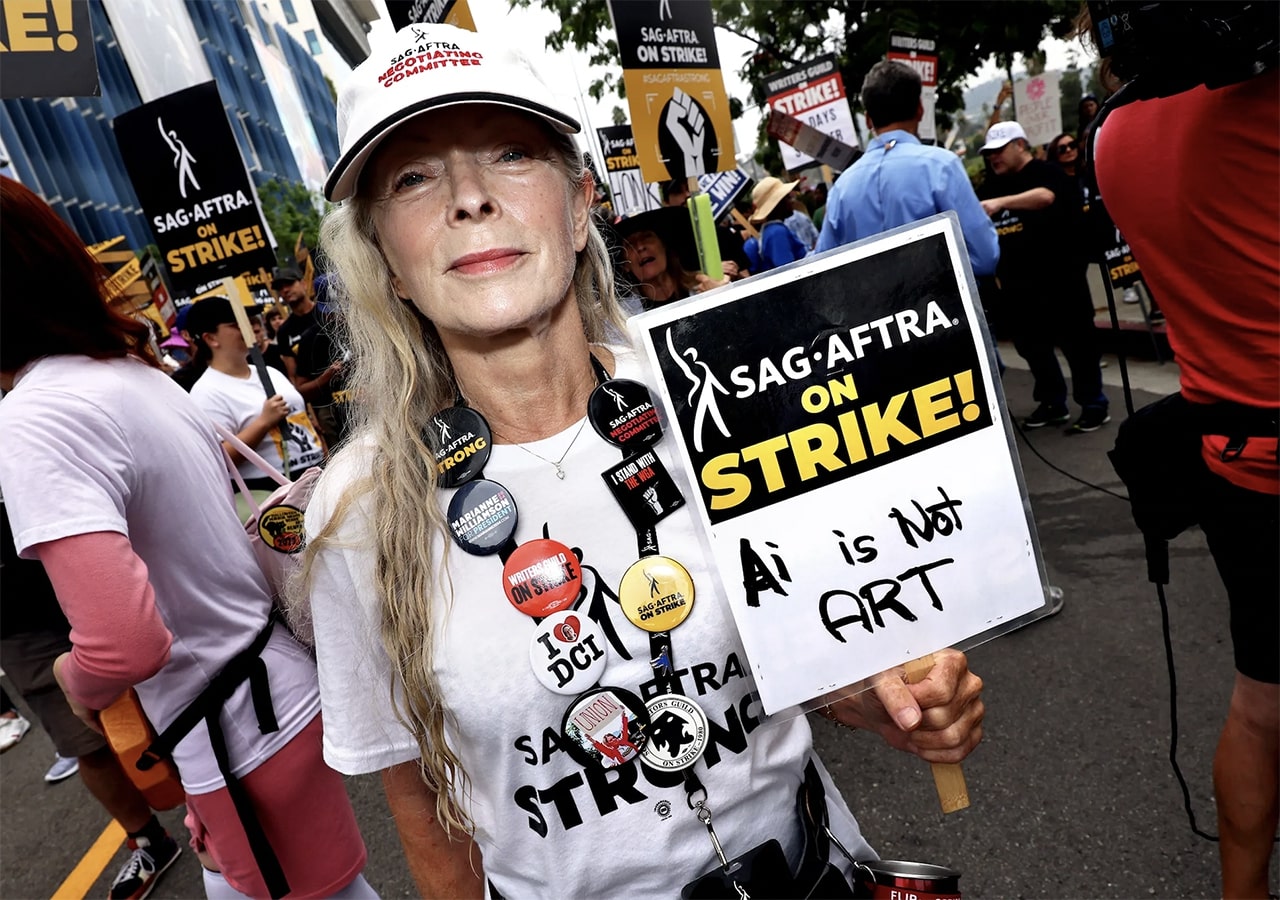2 Minute Read
Artificial Intelligence within the entertainment industry has been a hot topic and garnered significant attention recently with the 118-day Hollywood actors union strike that ended with an agreement on AI usage. SAG-AFTRA announced that 86% of its national board approved the agreement and went to union voters on Nov. 12, with a 21-day voting period. The deal is technically pending until union members' votes are tallied on December 5th. Some of the AI regulation features will go into effect during the ratification process.
In summary the agreement defines and establishes the following;
- Digital Replicas: Coverage for the creation, use and alteration of “digital replicas” of performers. Digital replicas are copies of the voice or likeness of a performer for “portraying the performer in photography or soundtrack in which the performer did not actually perform. In cases where a performer’s employer seeks to create a “digital replica” of the actor’s voice or likeness with the intent of using the copy in their place, the employer must first obtain “clear and conspicuous” consent from the performer and the employer must get the performer’s permission to use the replica, “unless the photography or sound track remains substantially as scripted, performed and/or recorded.”
- Compensation: Employers must pay performers for the amount of days they would have been required to perform scenes featuring their digital likeness. No additional pay is required if the replica later replaces the actor in scenes they were already paid for performing in person. Additionally, the performer is owed residuals for their digital replica’s screen time. If the employer wishes to use a performer’s digital replica for a project beyond the production the actor was employed for, the employer must obtain separate consent from the performer and describe how the replica will be used in “reasonably specific” terms.
- Digital Altering: Employers also must obtain consent from actors before digitally altering their performances. Exceptions include standard postproduction adjustments and matching a performer’s lips to a dubbed foreign language. Employers would be allowed to digitally alter a performer’s body movement as well without their consent “when the photography or sound track of the performer remains substantially as scripted, performed and/or recorded.”
- Synthetic Performers: The agreement addresses the use of “synthetic performers,” or non replica digital humans on screen instead of human performers. Companies must notify and plead their case to the union before using a synthetic performer instead of a human performer. These protections do not apply to nonhuman characters.
You can read the agreement here

How is AI currently Influencing the Entertainment Industry
AI-generated scripts and editing: Studios using generative AI will benefit from a boost in-house profitability, which is a particular concern for streaming businesses. The World Economic Forum identifies generative AI in its Top Ten Emerging Technologies of 2023 report, noting that systems like ChatGPT can “increase productivity and improve output quality, restructuring human tasks towards idea generation and editing as opposed to rough drafting”.
Improved VR/AR experience: AI is enhancing the realism of VR and AR experiences by enabling more natural language interactions, generating accurate 3D models of real-world objects and environments, creating more interactive experiences. AI enhances virtual and augmented reality with lifelike characters and responsive environments, making entertainment more engaging and interactive.
Optimized Analytics and Business Insights: AI enables companies to better understand business insights by analyzing box office ticket sales and performance, audience metrics and industry trends. This enables decision-makers to make smart investment strategies.
Personalized content suggestions: AI-driven recommendation algorithms analyze user data and behavior to offer hyper personalized content suggestions, enhancing user retention on media platforms and streaming services.
Copyright Protection: AI algorithms protect content copyrights by monitoring digital platforms for infringement, identifying unauthorized use of copyrighted material, and safeguarding intellectual property rights.
AI-powered visual effects: AI-powered visual effects elevate CGI quality in movies and TV shows, creating realistic scenes, environments and characters achieving a greater immersive storytelling.
AI-powered content creation, storytelling and scriptwriting: AI algorithms streamline scriptwriting and interactive storytelling by analyzing huge amounts of data from audience behavior and preferences to influence the narrative direction, change movie scripts and audio sound, resulting in more immersive, engaging and targeted content.
For more information on how you can build an AI marketing strategy for your brand, talk to us today.

